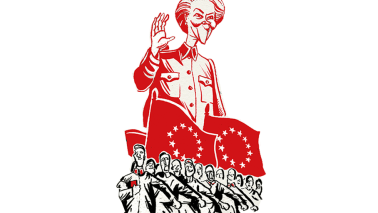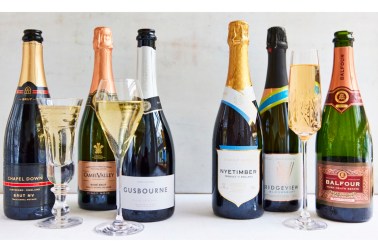So, the sun has set on World Book Night. A million books have found new homes. Of course, the notion of giving away books for free was always going to be controversial (see Emily Rhodes) and it inspired some furore. There was a squabble on Newsnight
about the event’s deleterious effects on independent booksellers and Boyd Tonkin raised the pertinent point that it burgles valuable airtime from opposing
library closures. Because, as one woman said at the Manchester live event: ‘It’s like World Book Night everyday in a library.’
Such niggles were addressed in part during the first offering of Saturday’s dedicated evening of books on BBC2, all courtesy of The Culture Show. A Million Books for Free, presented by the affable Andrew Graham-Dixon, touched on the ethics of books-for-free over a tomato juice and tap water with
Sarah Waters and David Nicholls. But, apart from the repeated truism that authors need to be supported, such concerns were far from the authors’ minds. Instead, the show hummed with
enthusiasm as an eclectic array of givers was interviewed, from a factory worker to a response policeman. Books were given away in chippies, knitting groups, while patrolling the beat and at the
office. Footage from Friday’s launch night was interspersed throughout – a rather startled Alan Bennett looking slightly lost among the ritzy glamour of Trafalgar Square.
Sue Perkins popped up with the second offering of the night The Books We Really Read, all about bestsellers. Perkins was funny, lively and
watchable. But there was one problem: she doesn’t like bestsellers. In fact, as she admitted, she doesn’t even read bestsellers. So the whole thing was a bit like watching Martin Amis
on children’s books. Perkins divided the bestseller into thriller, crime and romance. None, really, met her approval. There were some good interviews with Ian Rankin, Ruth Rendell and a
superb appearance from Lee Child (including one of the greatest two-fingered salutes to the literati, at 10:46 if you’re interested).
But the whole thing was starved of passion. Whether tromping around Oxford with a Morse walking group or gazing quizzically at the cover of Confessions of a Shopaholic, Perkins seemed bemused by the bestseller phenomenon. Trying to truss it all up at the end, she offered a curious theory that the reading public was divided into those who either liked Pride and Prejudice (the ur-text of chick-lit, apparently) or Wuthering Heights (proto-literary fiction at its messy best). She was, unsurprisingly, a Brontë fan. She concluded with the idea that cross-breeding literary fiction and bestsellers would be good, mixing that plot with those sentences. A valuable point, and one made with considerable charm, but the programme could have used a bestseller enthusiast (John Sutherland springs to mind) to quicken its pulse.
Someone with Perkins’ enviable TV talents, but also with a trainspotterish knowledge and enthusiasm for his subject, is Professor John Mullan, who chaired a panel of five judges to try and
pick twelve of the most exciting debut novelists of the last two years in New Novelists: 12 of the Best. Joining Mullan were Janet
Lee, Alex Clark, Helen Oyeyemi and Spectator regular, Sam Leith. As well as sandpapering down a boxful of books to the lucky dozen, the show also explored the State of the Novel more generally.
Creative writing courses were a spectral presence throughout. Rose Tremain and Kazuo Ishiguro offered their memories of life at the UEA under Malcolm Bradbury, showing how such courses evolved from
imported anachronisms to providing valuable midwifery for new writers. The early eighties was hailed as the due-date for literary fiction’s explosion into the public consciousness (the
opening of Waterstone’s and the first 1983 Granta list), and Mullan harboured almost parental hopes that his own list would wear as well as the ’83 Granta gathering (which included
Martin Amis, Ian McEwan, Ishiguro, Tremain and Julian Barnes). Formal hi-jinx was the running trend through most of their choices, with Sam Leith pointing out that 19th century realism was a
no-show: third-person omniscient narrators who ploughed through a story from start to finish had left the building for good. The selected authors beamed and grinned, the rabbit-in-a-headlight look
perfected by Bennett earlier on in the night doing the rounds once more.
Before zipping the whole thing up with a showing of Brideshead Revisited, the evening bowed out with a live feed from James Naughtie at the Royal Festival Hall. The place was packed. Jamie
Byng, the man behind it all, claimed that World Book Night would expand and develop for 2012 and beyond. His idea is a truly noble one and he deserves more praise than he has received. As he said
earlier on in the evening: ‘No one has ever tried something on this scale with books before.’ Saturday night showed what such ambition and vision can achieve.





Comments